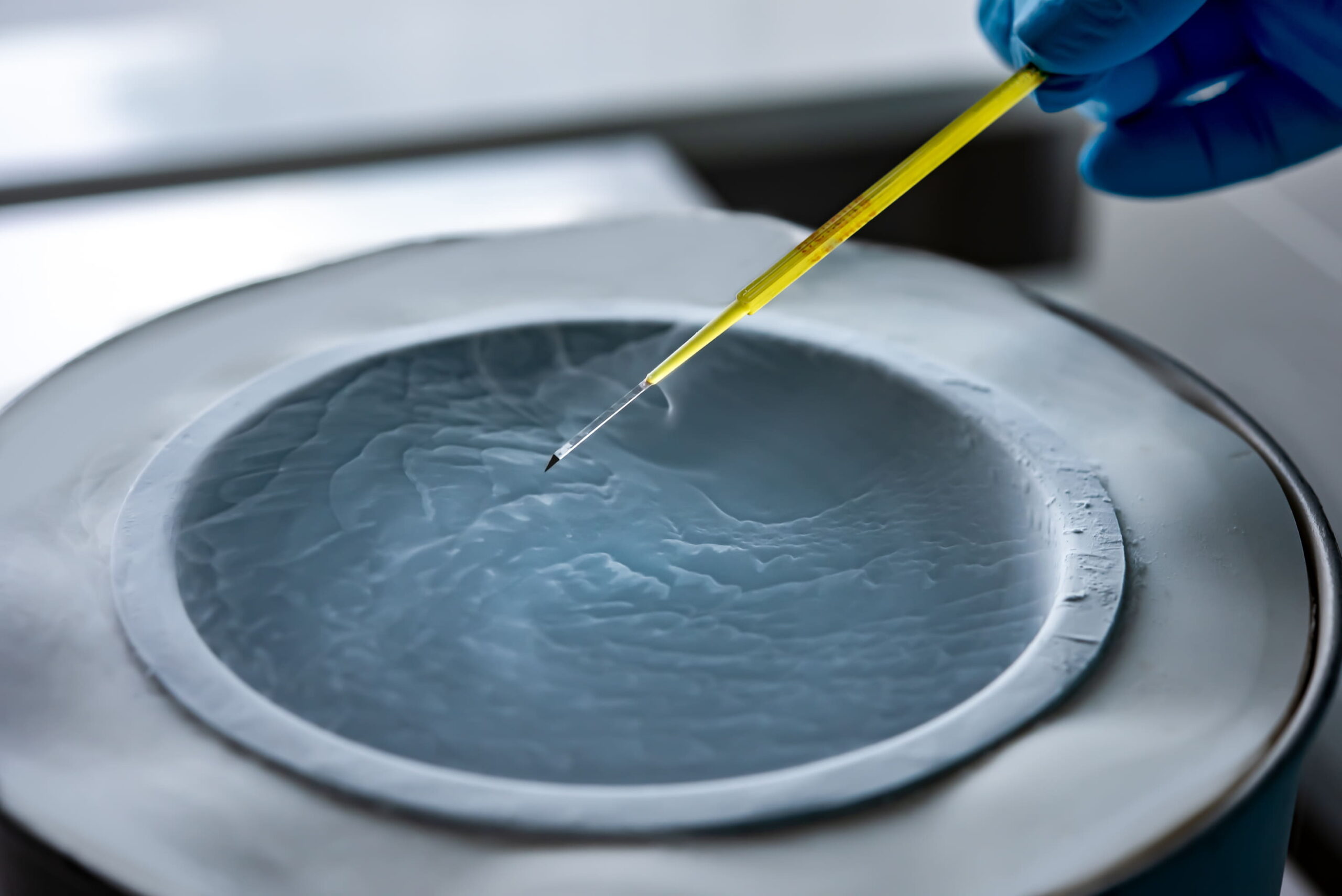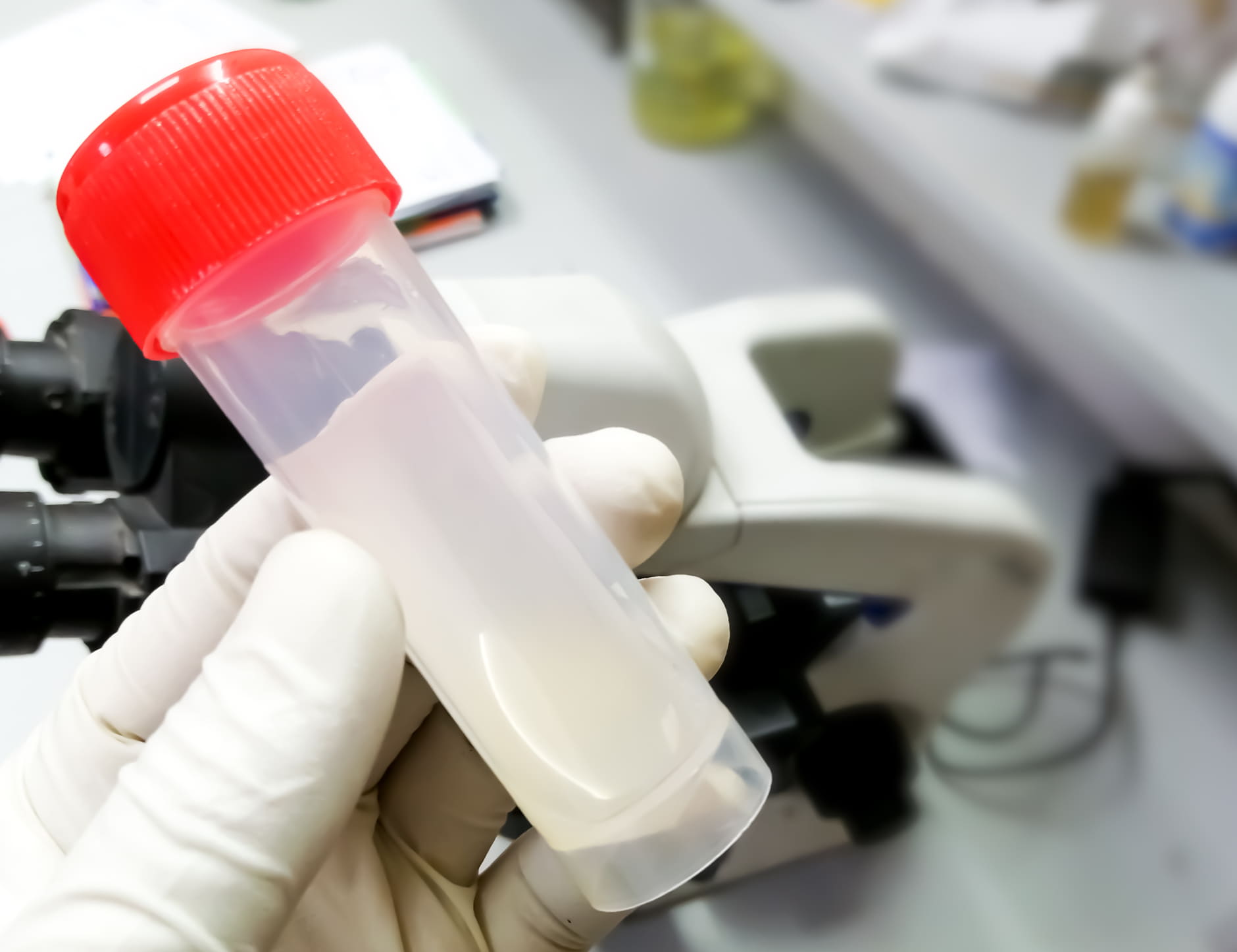

Looking for expert sperm retrieval techniques in Ahmedabad? Dr. Maulik Shah specializes in advanced procedures such as Testicular Sperm Extraction (TESE), Percutaneous Epididymal Sperm Aspiration (PESA), and Microdissection Testicular Sperm Extraction (MicroTESE) to help overcome male infertility challenges. With years of experience and a commitment to providing personalized care, Dr. Maulik Shah ensures that patients receive the highest quality treatment tailored to their unique needs.
Testicular Sperm Extraction (TESE) is a surgical procedure used to retrieve sperm directly from the testicles. This technique is commonly recommended for men with obstructive azoospermia or non-obstructive azoospermia. With TESE, Dr. Maulik Shah can retrieve viable sperm for use in assisted reproductive techniques such as IVF with ICSI.
Percutaneous Epididymal Sperm Aspiration (PESA) is a minimally invasive procedure used to aspirate sperm directly from the epididymis. This technique is often recommended for men with obstructive azoospermia or those who cannot undergo TESE. Dr. Maulik Shah performs PESA with precision and skill to retrieve high-quality sperm for fertility treatment.

Microdissection Testicular Sperm Extraction (MicroTESE) is an advanced form of TESE that uses high-powered microscopes to identify areas of the testicles with the highest concentration of sperm. This precise technique minimizes tissue damage and maximizes the chances of retrieving viable sperm, even in cases of non-obstructive azoospermia.
Dr. Maulik Shah is renowned for his expertise in sperm retrieval techniques and has helped numerous couples achieve their dream of parenthood. Whether you require TESE, PESA, or MicroTESE, you can trust Dr. Maulik Shah to provide compassionate care and excellent results.
If you’re struggling with male infertility, don’t lose hope. Dr. Maulik Shah offers comprehensive male infertility treatment in Ahmedabad, including advanced sperm retrieval techniques, to help you overcome fertility challenges and fulfill your desire for parenthood.
Sperm retrieval techniques, such as TESE, PESA, and MicroTESE, are used in cases of male infertility where sperm are unable to naturally reach the ejaculate or are not present in sufficient quantities for conception through intercourse. These techniques are typically employed when:

Overall, sperm retrieval techniques are utilized to obtain viable sperm for use in assisted reproductive technologies, such as IVF with ICSI, to help couples achieve pregnancy when natural conception is not possible due to male factor infertility. It’s essential to consult with a fertility specialist to determine the most appropriate treatment approach based on individual circumstances and factors contributing to male infertility.
TESA (Testicular Sperm Aspiration), PESA (Percutaneous Epididymal Sperm Aspiration), and MicroTESE (Microdissection Testicular Sperm Extraction) are three different sperm retrieval techniques used in male infertility treatment. Here are the key differences between these methods:
In summary, while TESA and PESA are suitable for cases of obstructive azoospermia, MicroTESE is preferred for non-obstructive azoospermia due to its higher success rates and ability to retrieve higher-quality sperm. Each technique has its advantages and indications, and the choice of method depends on the specific diagnosis and individual patient factors. Consulting with a fertility specialist is essential to determine the most suitable sperm retrieval technique for each patient’s unique situation.
When considering sperm retrieval techniques such as Testicular Sperm Aspiration (TESA), Percutaneous Epididymal Sperm Aspiration (PESA), and Microdissection Testicular Sperm Extraction (MicroTESE) in Ahmedabad, it’s essential to understand the factors that can influence the overall cost. While we won’t mention specific prices here, below are some key considerations regarding the cost of these procedures:
Overall, the cost of TESA, PESA, and MicroTESE in Ahmedabad can vary based on a range of factors. Patients are encouraged to discuss all aspects of the procedure, including associated costs, with their healthcare provider to make informed decisions about their fertility treatment journey.
Sperm retrieval techniques are medical procedures used to retrieve sperm directly from the testicles or epididymis for use in assisted reproductive technologies (ART) such as in vitro fertilization (IVF) with intracytoplasmic sperm injection (ICSI).
These techniques are used in cases of male infertility, including obstructive azoospermia (blockage in the reproductive tract preventing sperm from reaching the ejaculate) and non-obstructive azoospermia (impaired sperm production).
TESA (Testicular Sperm Aspiration) involves aspirating sperm directly from the testicles, PESA (Percutaneous Epididymal Sperm Aspiration) involves aspirating sperm from the epididymis, and MicroTESE (Microdissection Testicular Sperm Extraction) involves microsurgical dissection of the testicular tissue to locate sperm-producing tubules.
The choice of technique depends on factors such as the underlying cause of infertility, the presence of a blockage in the reproductive tract, and the quality of sperm required for ART. A fertility specialist can help determine the most suitable technique based on individual circumstances.
Sperm retrieval techniques are typically performed under local anesthesia to minimize discomfort. Patients may experience mild discomfort or pressure during the procedure but should not feel significant pain.
Success rates vary depending on factors such as the underlying cause of infertility and the specific technique used. MicroTESE generally has higher success rates compared to TESA and PESA, especially in cases of non-obstructive azoospermia.
While sperm retrieval techniques are generally safe, there are risks of complications such as bleeding, infection, and damage to surrounding structures. These risks are minimized by choosing an experienced fertility specialist and following post-procedure care instructions.
Recovery time varies depending on the specific technique used and individual factors. Most patients can resume normal activities within a few days to a week after the procedure.
The costs depend on factors such as the type of procedure, the clinic’s location, and any additional services required. Patients should consult with their healthcare provider or fertility clinic for specific pricing information.
Yes, sperm retrieved through TESA, PESA, or MicroTESE can be used for various ART procedures, including IVF with ICSI, to achieve pregnancy.